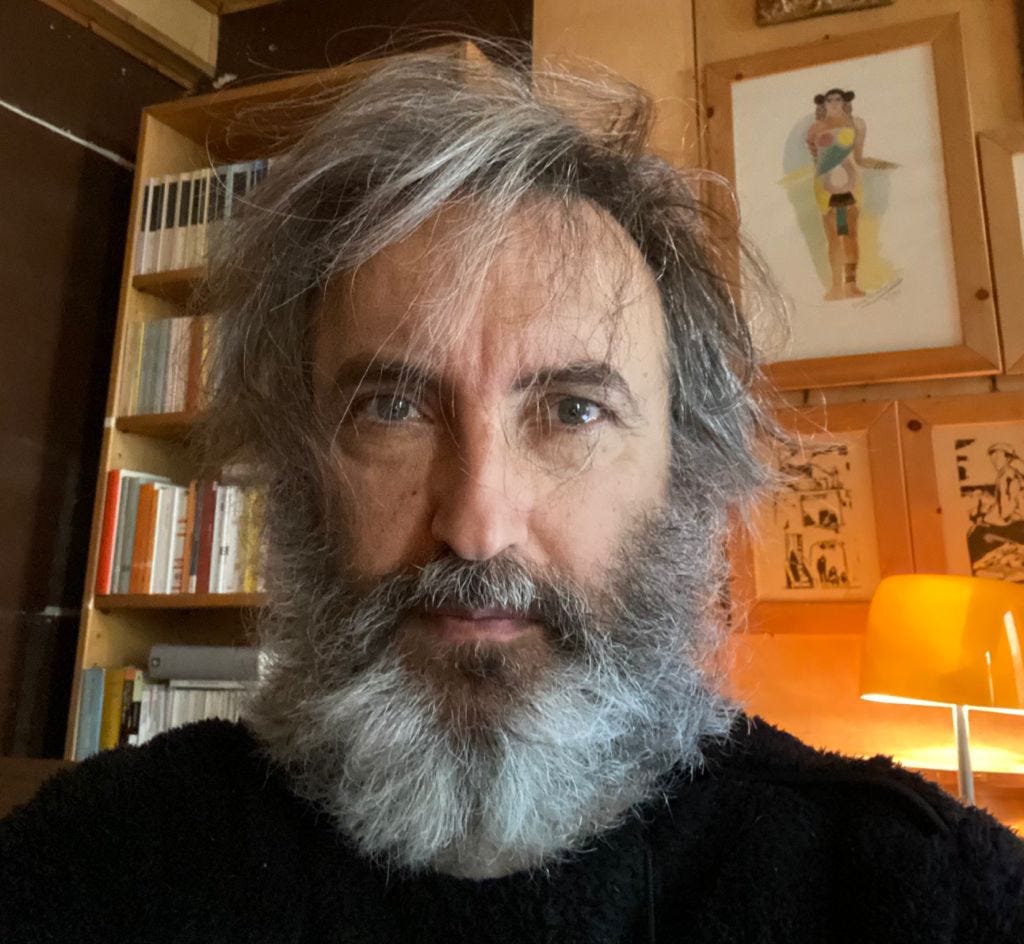Uno dei più illustri compositori italiani contemporanei, Andrea Liberovici è cresciuto a Venezia, dove ha iniziato a scrivere musica all'età di 14 anni. Ha studiato ai conservatori di Venezia e Torino e la sua musica è stata eseguita in tutto il mondo. Nel 2016 ha creato Venezia. Madrigal per violoncello e città e nel 2020 la serie Acoustic Postcards: Venezia. È stato un vero onore poter parlare con lui della città che vede come "uno strumento musicale in sé".
Un visitatore arriva a Venezia su un tappeto magico con solo un'ora per vedere la città. Cosa deve fare?
Scendere alla Giudecca e guardare la città da lì. Guardare uno skyline dall'esterno può essere un mezzo di orientamento e di apprezzamento, come vedere Manhattan da Williamsburg a Brooklyn. Ma il visitatore dovrebbe fare attenzione a non volare a Venezia propriamente detta: rischia di innamorarsi!
Le sue composizioni sono state eseguite in alcuni dei più importanti teatri e sale da concerto del mondo. Dove ti piacerebbe ascoltare il tuo lavoro a Venezia?
Ho già avuto la fortuna di avere la mia musica alla Fenice, quindi sceglierei il Guggenheim, sono affascinato dalla sua storia. Peggy Guggenheim ha portato John Cage a Venezia, e penso che possa aver suonato il Bechstein a casa mia durante il suo periodo qui. Così, perlomeno, mi è stato riportato da alcuni musicologi. Io all’epoca non ero ancora nato.
Storicamente, Venezia è stata uno dei centri più importanti del mondo per la musica - cosa pensa del ruolo della musica nel suo futuro?
Sono sempre stato colpito dall'intensa musicalità della città - la musica è nata in molti modi qui. Oltre a famosi compositori del passato come Monteverdi, anche la musica moderna è fiorita qui, penso per esempio a due giganti del ‘900 come Bruno Maderna e a Luigi Nono. La musica è sempre un veicolo per riflessioni più ampie. Venezia stessa nella sua morfologia è un gigantesco strumento musicale. L'intera città è costruita sul legno come una gigantesca cassa armonica. Questa è la visione dietro la serie Venezia Acustica. In futuro, vorrei che Venezia potesse essere suonata delicatamente, come uno strumento antico.
Raccogliere i suoni per Postcards è stata un'esperienza sorprendente?
Sono abituato a lavorare con suoni concreti. Le Postcards sono state un lavoro spontaneo. Volevo essere aperto a essere sorpreso, e lo sono stato. In un certo senso, i suoni hanno trovato me. Attualmente sto sviluppando questo aspetto, lavorando a un nuovo quartetto d'archi intorno alla serie Postcards.
Lei ha una squisita fiaschetta di Murano in cui può imbottigliare un ricordo veneziano - cosa sceglierebbe?
Camminare ancora sulla fondamenta delle Zattere con mia madre e il mio patrigno.
Sito web: Andrea Liberovici
Puoi sentirli anche il 19 aprile su Quinte Parallele, un rivista di musica classica. Andrea e indagare il rapporto tra la musica e la letteratura,
ENGLISH VERSION
One of Italy’s most distinguished contemporary composers,Andrea Liberovici grew up in Venice, where he began writing music at the age of 14. He studied at the conservatories of Venice and Turin, and his music has been performed all around the world. In 2016, he created Venice. Madrigal for cello and city and in 2020 the Acoustic Postcards: Venice series. It was a true honour to be able to speak to him about the city which he sees as “a musical instrument in itself”.
A visitor arrives in Venice on a magic carpet with only one hour to see the city. What should they do?
Descend on Giudecca and look across at the city from there. Looking at a skyline from the outside can be a means of orientation as well as appreciation- like seeing Manhattan from Williamsburg in Brooklyn. But the visitor should take care not to fly into Venice proper- they risk falling in love!
Your compositions have been performed in some of the world’s most distinguished theatres and concert halls. Where would you like to hear your work in Venice?
I’ve already been lucky enough to have my music at the Fenice, so I would choose the Guggenheim- I’m fascinated by its story. Peggy Guggenheim brought John Cage to Venice, and I think he may have played the Bechstein in my house during his time here. At least that is what I have been told by some musicologists. I was not yet born at the time
Historically, Venice has been one of the most important centres in the world for music- what are your thoughts on the role of music in her future?
I have always been struck by the intense musicality of the city- music was in many ways born here. As well as famous composers from the past such as Monteverdi, modern music has also flourished here- I am thinking, for example, of two giants of the 20th century, Bruno Maderna and Luigi Nono. Music is always a vehicle for wider reflections, and Venice itself in its morphology is a gigantic musical instrument. The whole city is constructed on wood; like a gigantic sound board. This is the vision behind the Venezia Acoustica series. In the future, I would wish that Venice could be played gently, like an antique instrument.
Was collecting the sounds for Postcards a surprising experience?
I’m used to working with concrete sounds, whereas Postcards was an unplanned, spontaneous work. I wanted to be open to being surprised, and I was. In a sense, the sounds found me.I’m currently developing that, working on a new string quartet set around the Postcard series.
You have an exquisite Murano flask in which you can bottle one Venetian memory- what would you choose?
Walking again along the Zattere with my mother and stepfather.
Listen to a postcard from Venice
Website: Andrea Liberovici




